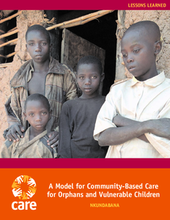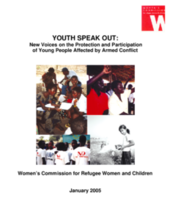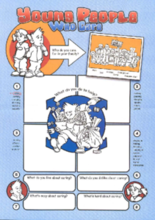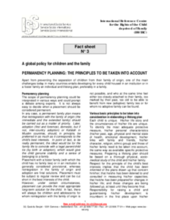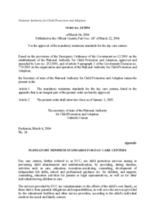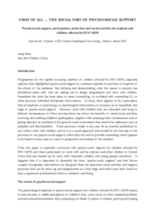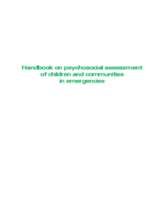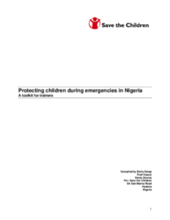Displaying 321 - 330 of 377
A lessons learned document reviewing impacts of a community-based care and mentoring program for child-headed households in Rwanda.
This document provides a tool that was used to assess broad capacity areas for quality OVC response in Uganda.
Discusses specific steps to expand on policy guidelines for youth protection and care. Includes list of additional practical resources.
A child friendly assessment form for children/young people who are caregivers. The assessment helps them to identify what support services they may need.
A brief fact sheet on global permanency planning, which highlights the importance of using an individualized and multidisciplinary approach to creating a long-term plan for every child.
Minimum standards for day care centers in Romania.
Comprehensive framework and resource guide intended to aid a situation analysis of orphans and vulnerable children. Includes relevant example analyses to illustrate the available variety of approaches and their components.
Emphasizes the social dimensions of psychosocial support interventions, including participatory groupwork and a focus on reducing stigma and discrimination. Argues that psychological interventions such as counseling should never be a first step.
A guidebook focusing on the assessment to be conducted when an emergency first hits or just after a major event in an armed conflict. Outlines the preparation needs of an assessment team and describes what an assessment should concentrate on.
A comprehensive training toolkit for organizations and individuals who are directly involved in child protection and welfare during emergencies. Covers key topics related to children in emergencies, and includes learning points, classroom and field exercises, suggested itineraries and handouts.

